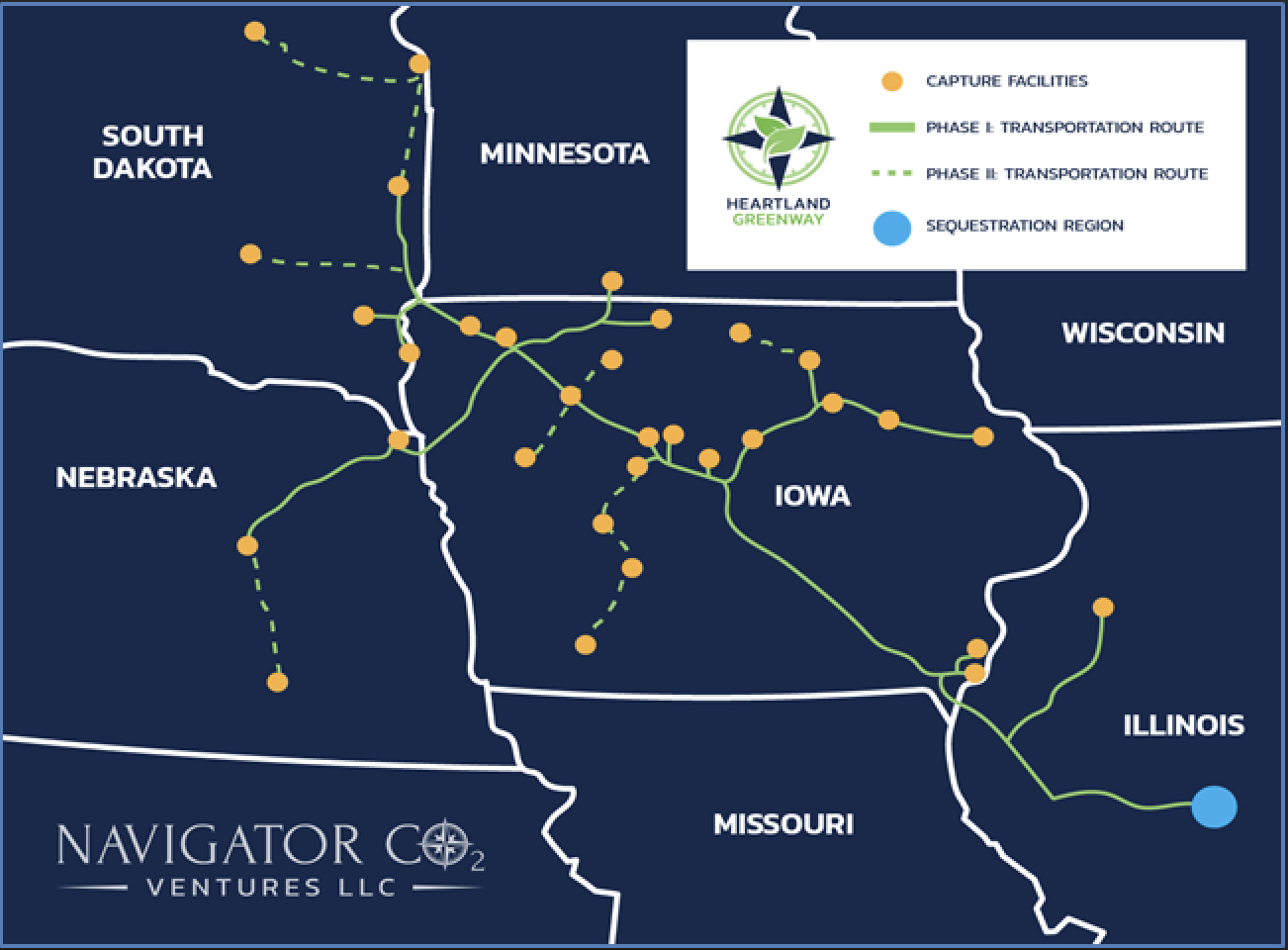
South Dakota Has No Place for CO2 Pipelines
Last Wednesday, the state’s Public Utilities Commission (PUC) denied a permit for a CO2 pipeline in five South Dakota counties.
Earlier this year, Navigator CO2 Ventures, a Texas-based carbon management company, announced plans to build a carbon dioxide pipeline from North Dakota to Illinois. The pipeline would carry carbon dioxide from around two dozen facilities in North Dakota, South Dakota, Nebraska, Minnesota, Iowa and Illinois to a “sequestration site” in central Illinois where the CO2 would be pumped over a mile beneath earth’s surface.
Navigator’s main rival, Summit Carbon Solutions, also has a permit pending with the PUC to build a CO2 pipeline to North Dakota. Both projects have a price tag of around $3 billion.
This sounds like a noble idea, but noble ideas are not inherently practical, constitutional or effective. First, much of these costs are footed by you, the taxpayer. Last December, President Joe Biden signed an omnibus spending bill into law that allocated approximately $12 billion to carbon-capture projects.
Economically, this kind of project only exists when propped up by taxpayers. Unlike an oil pipeline that transports a valuable product that is necessary for modern civilization (and would be transported by train if not by pipeline), a CO2 pipeline is not an inherently profitable operation. There are private investors, no doubt. BlackRock, one of the nation’s largest investment companies, partnered with Navigator to fund their CO2 pipeline. These investors stand to gain substantial returns of their investments if the pipeline becomes operational.
What exactly do we, the people, get in return? According to Navigator’s website, their pipeline would sequester 16 million tons of CO2 every year. This seems like a significant amount of CO2 that would not be released into the atmosphere. However, this number is inconsequential compared to the 40 billion tons of CO2 that are estimated to be emitted into the atmosphere every year. This pipeline would sequester less than 1/100 of 1% of yearly CO2 emissions.
The project does have tremendous environmental impact, though. Building thousands of miles of pipeline will have an impact on the immediate environment, and any CO2 leaks can sicken people, as they did in Mississippi in 2020 where over 40 people were injured from carbon dioxide poisoning.
This project also necessitates the vast use of eminent domain to seize land at market value for the pipelines. Many landowners have been vocally opposed. This summer, activists and landowners opposed to the pipelines held a rally at the South Dakota Capitol in Pierre.
Constitutionally, I argue eminent domain does not extend to a CO2 pipeline because its existence does not benefit the public. Roads and bridges certainly benefit the public, but it’s not evident a CO2 pipeline fits this definition. Allowing eminent domain to be used for purposes outside of “public use,” as defined by the fifth amendment, sets a dangerous precedent that would eviscerate property rights for the average citizen.
How much of your rights are willing to give up in exchange for absolutely no impact on the earth’s climate? How much of your rights are you willing to give up so that wealthiest people in society can make more money by grifting the government and stealing your tax money? Corporate welfare in the name of saving the environment is still corporate welfare.
While I am disappointed that most politicians in South Dakota have not condemned the pipelines, it’s promising to see that the PUC has the courage to stand up to these pipelines. Ultimately, I hope that the words of the constitution are interpreted in the words they were written in and that we preserve our fundamental rights rather than surrender them to those who do not have our interests at heart.
Photo Credit: Navigator CO2 Ventures LLC
